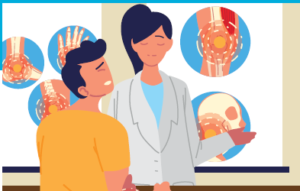 As the number of women practicing in rheumatology grows, so too does the need to better address persisting issues of gender inequity. By 2025, it is predicted that women will comprise the majority of the rheumatology workforce.1 Yet women who pursue an academic career are still less likely than men to be promoted, be first authors of peer-reviewed publications or receive research grants.2
As the number of women practicing in rheumatology grows, so too does the need to better address persisting issues of gender inequity. By 2025, it is predicted that women will comprise the majority of the rheumatology workforce.1 Yet women who pursue an academic career are still less likely than men to be promoted, be first authors of peer-reviewed publications or receive research grants.2
In 2014, four rheumatologists formed the Association of Women in Rheumatology (AWIR) to help advance women within the field. Co-founder and current AWIR president Grace C. Wright, MD, underscores that the Association aims to foster equity for women in leadership and compensation, as well as to promote the science and practice of rheumatology through education and advocacy for all providers. The AWIR now has local chapters across the U.S. as well as a presence in 22 countries.

Dr. Wright
The AWIR recently held its annual conference, with sessions covering a mix of clinical and professional topics, such as scientific research updates, ways to better address patient concerns, financial planning and legal issues. A major theme of the meeting is to address these issues within the contexts of gender equity and health disparities—two core principles of the AWIR, according to Dr. Wright.
“We can teach science in abstraction and practice medicine in a purist framework, or we can start to talk about the areas that need corrections and where we can do better,” she says. “To do that, we need to look at our science and our delivery of care through the optics of disparities, equity and the impact on our patients.”
Disproportionate Burdens
During the 2021 AWIR annual conference, held Aug. 12–15, a half-day session was devoted to global perspectives on COVID-19, during which rheumatologists from around the world (Australia, Brazil, Canada, the Caribbean, India and the U.S.) described the impact of the pandemic on their cities and countries. The discussions highlighted the extreme health disparities that exist between countries due to available resources, as well as how COVID-19 has exposed and exacerbated the disproportionate load that women providers carry.
“We heard the same stories but with a different flavor because of cultural overtones,” says Dr. Wright. “Women in general carry the greater burden as providers because they have to deal with both the communal and professional aspects of their lives.”

Dr. Ott
For Stephanie Ott, MD, AWIR’s co-chair of advocacy, helping women rheumatologists learn about wellness and life-work balance is key to AWIR’s goal of ensuring that all members, regardless of gender, have the right skills to be leaders. The persistent challenges female rheumatologists face in balancing their professional and personal lives can also lead to inequities in compensation due to caring and billing for fewer patients.


